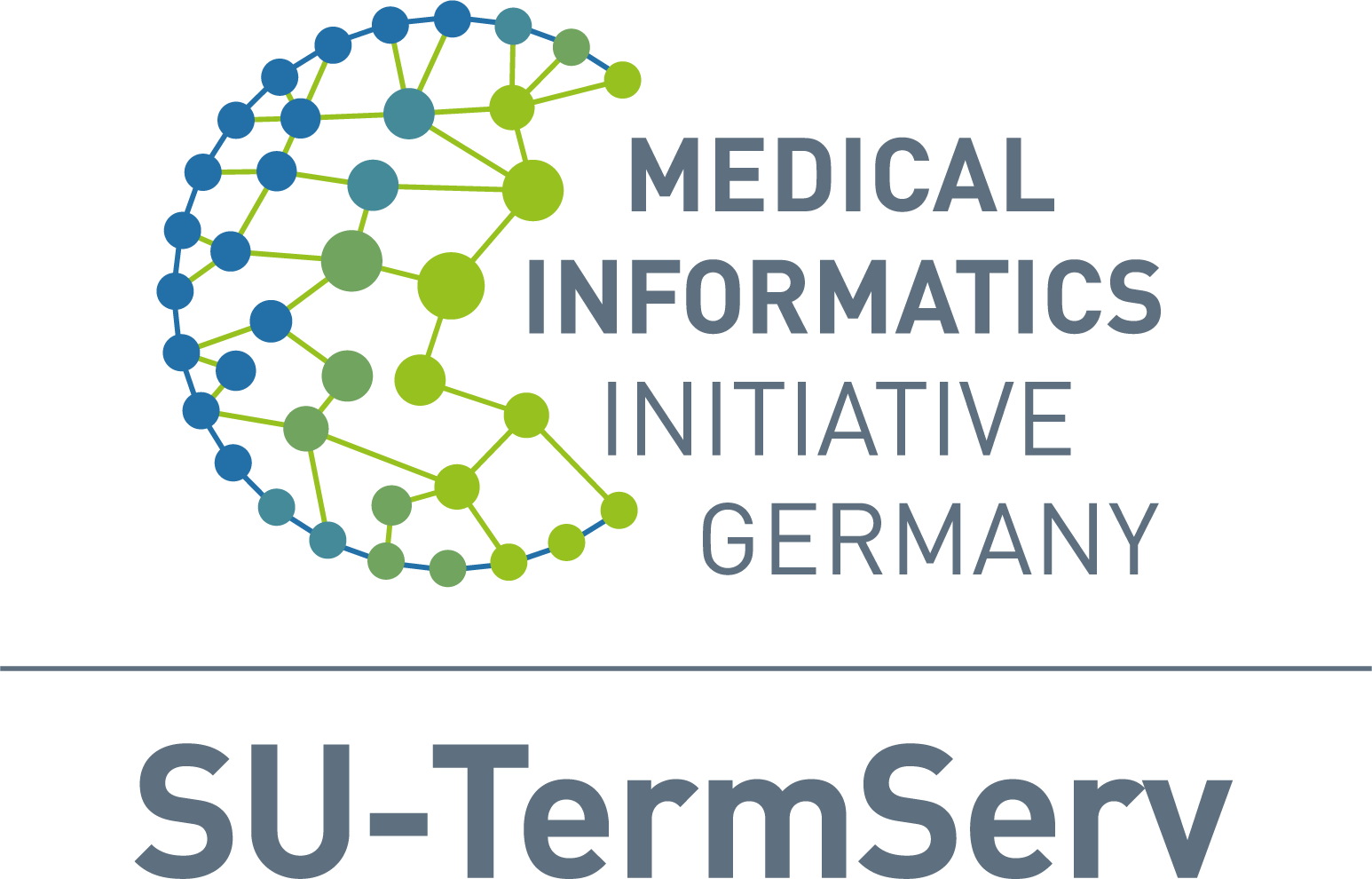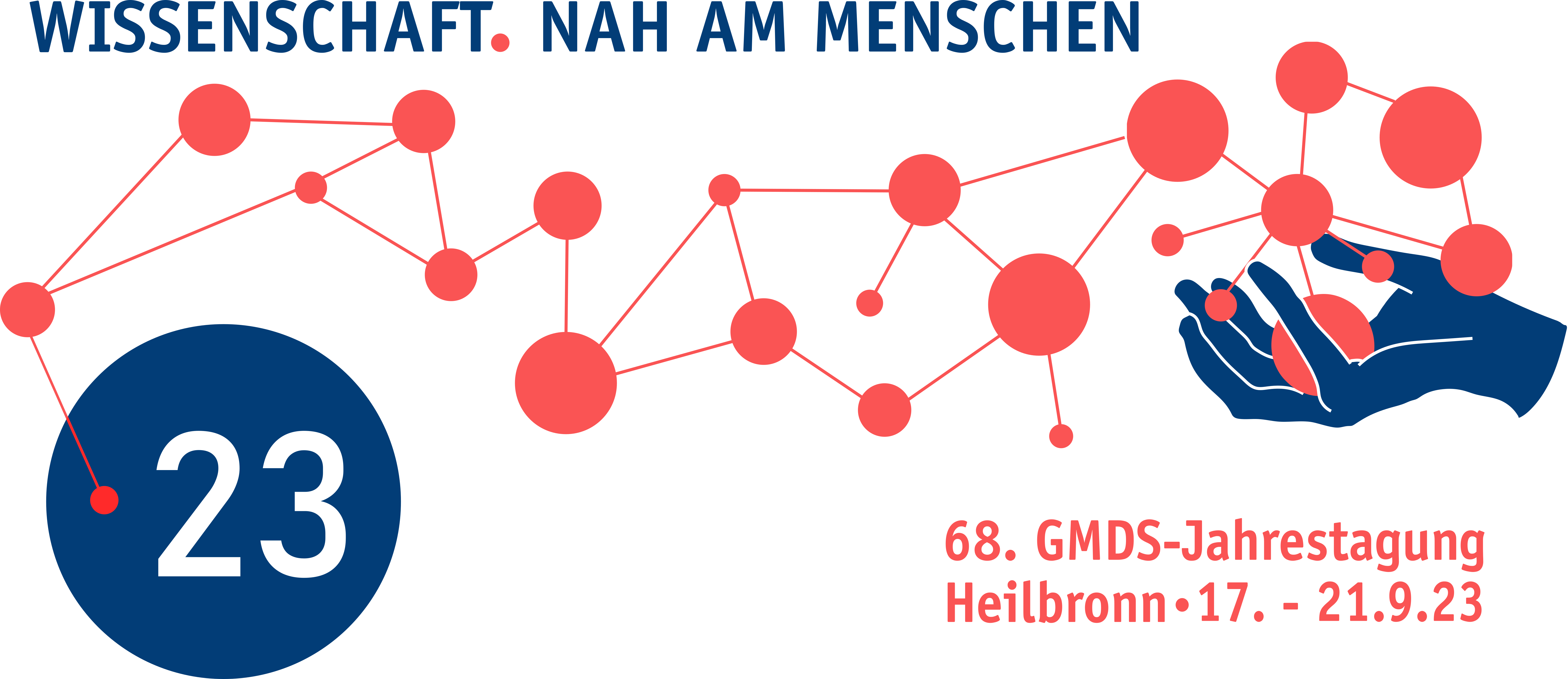During the 68th annual conference of the German Association for Medical Informatics, Biometry and Epidemiology (GMDS), the GMDS 2023, the GMDS working group Medizinische Terminologien und Klassifikationen (Medical Terminologies and Classsifications, MTK), together with the SU-TermServ, is organising a terminology server challenge.
The Terminology Server Challenge is taking place on Thursday, the 21th of September from 09:00 to approx. 16:00 in Room T.1.52. We are looking forward to your participation!
You can register for the event through the regular conference registration for the GMDS 2023. More information about the registration and the conference is available on the conference website, the programme is also available there.Preliminary Programme
| Time | Product | Speaker/-s |
|---|---|---|
| 09:00-09:15 | Introduction | Julian Saß, Josef Ingenerf, Joshua Wiedekopf |
| 09:15-09:55 | Ontoserver | John Grimes, Dion McMurtrie (CSIRO, Brisbane, Australia) |
| 10:00-10:40 | Kodjin Terminology Server | Svitlana Vedmed, Eugene Yesakov (Edenlab, Talinn, Estonia) |
| 10:45-11:25 | HAPI FHIR Server | Julian Saß (BIH Berlin) |
| 11:30-12:10 | ID Logik | Nikola Marijan, Dirk Rempe |
| 12:10-13:00 | Lunch | |
| open-end | Discussion |
Motivation and Content of the Challenge
Terminology servers (TS) are specialized software systems that allow application systems to access terminological content through defined application programming interfaces (APIs). With the establishment of HL7 FHIR as the structural standard for the German healthcare system (see specifications such as the MIOs from the KBV, the core data set of the MII, or the GECCO data set from the NUM), the FHIR terminology module becomes indispensable as the basis for terminological services. It allows providing heterogeneous semantic standards in the form of terminologies and classifications, as well as derived content, using standardized FHIR resources such as CodeSystem (CS), ValueSet (VS), and ConceptMap (CM), and accessing them through standardized software services (e.g. $lookup, $expand, $translate). Depending on the complexity of the used coding systems and their utilization in FHIR profiles (Binding), various challenges arise.
Infrastructure-wise, the need for appropriate terminology server solutions is becoming increasingly evident. This is also evident in the response of the legislature, which, at the end of 2022, mandated the establishment of a national terminology server, including its content, through paragraphs 12-14 in §355 SGB V (Social Security Code Book V), as part of the Hospital Nursing Relief Act (Krankenhauspflegeentlastungsgesetz - KHPflEG).
Currently, there is a great deal of uncertainty regarding which terminology server solutions are suitable for specific requirements. Some evaluation criteria are only hinted at here to enable a differentiated discussion:
- Pure provision of terminological resources (passive TS) versus offering of terminological services through an API (active TS).
- Centralized versus decentralized deployment of a TS (the latter with versus without synchronization of content from a central TS).
- Commercial versus open-source solutions.
- Experience with TS solutions in other countries.
Concrete solutions were already discussed in the 2021 workshop of the GMDS-AG MTK (Working Group Medical Terminologies and Classifications). The hesitant decision towards using dedicated (active) terminology server solutions is further complicated by the fact that seemingly every native FHIR server already provides sufficient support for terminological services. As a starting point for comparing different software solutions, CapabilityStatements can be used, which every implemented FHIR server, including FHIR-based terminology servers, must provide. However, from other activities, especially in the Medical Informatics Initiative (e.g., the Task Force for Data Selection, Data Provision, and Test Data - DDT), it is known that various implementations of native FHIR servers exhibit significant differences concerning theoretical and practical feasibility, capabilities, and performance, particularly when it comes to FHIR search queries. These observed phenomena become even more evident when focusing on FHIR-based terminology servers.
Goals of the workshop
Based on the format of the Clinical Document Challenge, which has been regularly organized by the GMDS in collaboration with the DIVI (German Interdisciplinary Association for Intensive Care and Emergency Medicine) since 2011, developers and manufacturers are given the opportunity to present their different product philosophies and functionalities of terminology server solutions to an expert audience under comparable conditions.
For this purpose, typical scenarios with test tasks, test data, and test services are prepared, which participants should complete. The comparative presentation aims to promote transparency, enabling interested parties to better assess solutions with their strengths and weaknesses for their specific requirements. It is explicitly not intended for the organizers to provide a statement or rank the solutions. The main goal is to promote an open discussion among participants.

